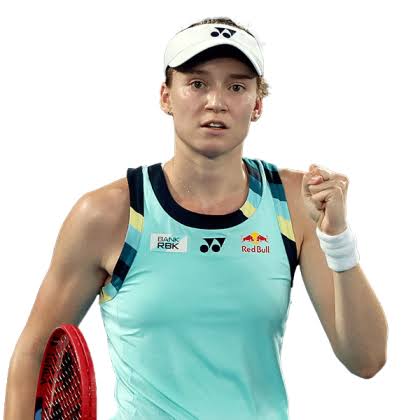Breaking News: Elena Rybakina Declines Major Deal with Head of Tennis – What It Means for the Team….
Breaking News: Elena Rybakina Declines Major Deal with Head of Tennis – What It Means for the Team….
In a surprising turn of events, Elena Rybakina, the reigning Wimbledon champion and one of tennis’s most promising stars, has declined a major endorsement deal with the Head of Tennis. This decision has sparked a flurry of speculation and analysis within the tennis community and beyond. The ramifications of Rybakina’s choice could potentially reshape the landscape of tennis endorsements and team dynamics. Here’s a closer look at what this means for Rybakina, Head of Tennis, and the broader tennis ecosystem.
#### The Deal in Question
The endorsement deal with Head of Tennis was reportedly set to be one of the most lucrative in the sport’s history, involving significant financial incentives and a comprehensive sponsorship package. The agreement would have seen Rybakina exclusively use Head of Tennis equipment, including racquets and apparel, while also participating in promotional campaigns and endorsements.
Head of Tennis, a leading name in the tennis equipment industry, has been keen on bolstering its roster of elite athletes, aiming to leverage Rybakina’s growing popularity and success on the court. The deal was expected to be a major boost for the company, reinforcing its position in a highly competitive market.
#### Rybakina’s Decision
Elena Rybakina’s decision to turn down the deal has generated considerable buzz. While the exact reasons for her choice have not been publicly detailed, several factors could be influencing her decision. Rybakina may be weighing the terms of the deal against her personal and professional goals, or she might have other endorsements or partnerships in mind that align better with her brand and aspirations.
Rybakina’s management team has been tight-lipped about the specifics of her decision, but it is clear that the choice was made after thorough consideration. The fact that she is a major player in the sport only adds to the intrigue surrounding her decision.
#### Impact on Rybakina
For Rybakina, the decision to decline the deal may have several implications. On one hand, she is maintaining her autonomy in choosing endorsements and partnerships that best fit her personal brand and career objectives. This decision reflects her strategic approach to career management, emphasizing careful alignment of her endorsements with her long-term goals.
On the other hand, by turning down a deal with such a high-profile company, Rybakina may be missing out on a significant financial boost and the potential exposure that comes with being associated with a global brand. However, it is also possible that she is positioning herself for a future deal with even greater benefits or one that better aligns with her evolving career trajectory.
#### Impact on Head of Tennis
For Head of Tennis, Rybakina’s decision represents a significant setback. The company had likely invested considerable resources into negotiating the deal and had high hopes for the partnership. Losing out on Rybakina could impact their marketing strategy and their ability to attract other top players.
However, the company is known for its resilience and innovative approach to endorsements. They may pivot their strategy, focusing on other rising stars or enhancing their current partnerships to mitigate the impact of this setback. Head of Tennis has a history of successfully navigating changes in the endorsement landscape, and they are likely to adapt their strategy to maintain their competitive edge.
#### Broader Implications for Tennis
Rybakina’s decision highlights a broader trend in sports endorsements where athletes are increasingly selective about their partnerships. This shift reflects a growing awareness among athletes of their market value and the strategic importance of aligning with brands that resonate with their personal and professional identities.
The decision also underscores the evolving dynamics between athletes and brands. In a highly competitive endorsement market, athletes like Rybakina are becoming more strategic in their choices, considering factors beyond just financial incentives. This trend may lead to more tailored and personalized endorsement deals in the future, benefiting both athletes and brands in finding mutually advantageous partnerships.
#### Conclusion
Elena Rybakina’s decision to decline the major endorsement deal with Head of Tennis is a significant development in the world of sports endorsements. It highlights the complexities and strategic considerations involved in such high-stakes decisions. For Rybakina, it represents a calculated choice in her career management, while for Head of Tennis, it is a challenge to adapt and refocus their endorsement strategy.
As the sports world watches closely, the outcomes of this decision will likely ripple through the tennis community and the broader sports endorsement landscape, potentially influencing how future deals are approached and negotiated.

